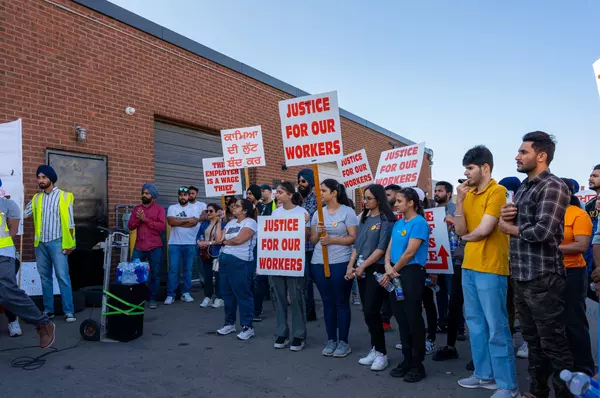Labour group uses social media, protests to recoup $250K in unpaid wages to international students
Dozens of protesters outside calling for action and talking about wage theft is a scary sight for businesses — but has become an effective tactic for one Ontario collective action group in Brampton and Mississauga.
For nearly two years, Rupinder Singh felt like he had been stiffed.
The international student from India says he was out more than $4,000 after his employer, Sukh Auto, allegedly never paid his wages and vacation pay. The experience was haunting and involved Singh allegedly being struck by a shovel by the owner of the auto body shop, Sukhdeep Hunjan.
At that point, Singh, not entirely clear on the labour laws, knew the only shot to get the money he thought he was owed back would be with support.
So, he turned to Naujawan Support Network (NSN), a group mainly comprised of students, often international and immigrants based in Peel Region. Naujawan means a young person in Punjabi, the language spoken by many of the international students. They target employers they believe are exploiting workers’ rights to take collective action. The network also helps the students learn about their rights as tenants and what landlords can and can’t make them do.
“When international students or workers, primarily immigrants in Brampton, have faced exploitation in the workplace or through their landlord, they usually come to us,” said Simran Dhunna, a member of NSN.
“When a worker isn’t paid their regular paycheque, it destroys a person’s mental health, ability to pay their rent and groceries, ability to provide for their family.”
Given their track record of success, which Dhunna said totals over $250,000 recouped from employers in just over a year of operations, NSN has become a mainstay in the community.
“We initiate a public campaign to pressure the employer to pay their former worker so that the community and other workers are aware of the exploitative practices,” she said.....

Naujawan Support Network holds a sign reading “justice for our workers” in both Punjabi and Urdu at a protest in front of Sukh Auto. Naujawan Support Network
















